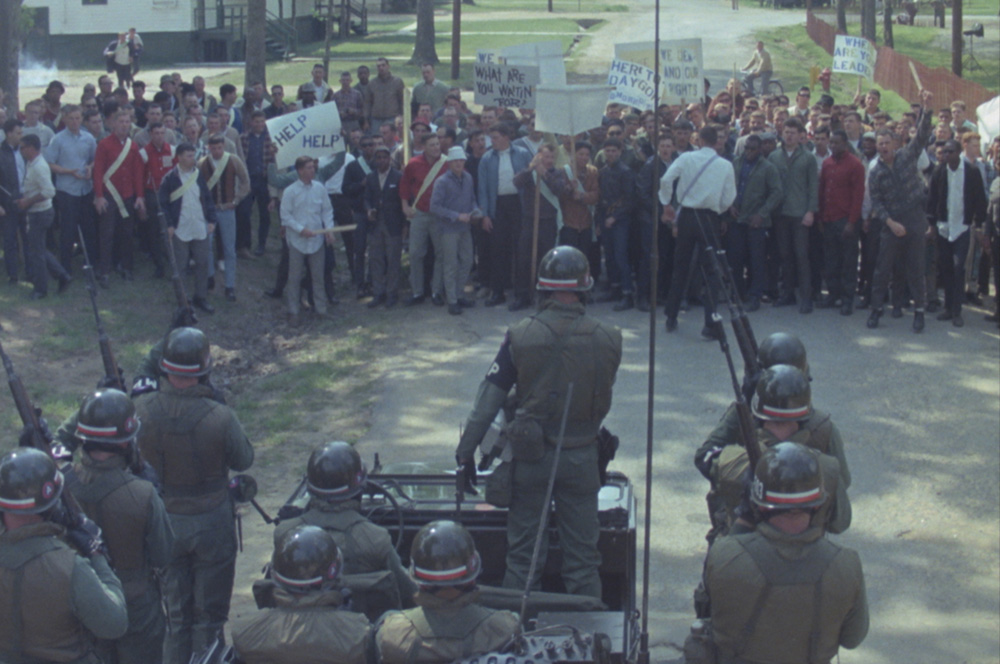It’s been a hallmark of Sierra Pettengill’s work thus far to put the past in conversation with the present in undeniable ways with such films as “The Reagan Show” and “The Rifleman,” but still one has to wonder what it must’ve been like to cut together “Riotsville, USA” when Black Lives Matter protests were rising up around the country as the archival maestro was making Freedom of Information Act requests for footage of training films and news footage from the 1960s as police departments across the country were preparing to quell even the slightest social unrest by staging mock protests for practice at Fort Belvoir in Virginia. As the filmmaker will note throughout “Riotsville,” this training base and another (Fort Gordon) used for this specific purpose take their names from Confederate generals and the parallels to the present are all too obvious as the filmmaker is able to chart how institutionalized racism and oppression has continually metastasized into new forms, though the observations themselves still startle.
What may be unthinkable by today’s standards is the political opportunity that President Lyndon B. Johnson saw in the rash of race riots that began in Detroit in 1967, creating a committee to be known as the Kerner Commission to investigate the role of outside agitators in civil rights protests that turned violent. Johnson is shown to be less interested in getting at the root cause knowing full-well what that was in advance than what he could do with the resulting report from a respected bipartisan group, so eagerly anticipated by the public that it became a bestseller on the scale of “Valley of the Dolls.” Aimed to bolster support for building on the sweeping societal changes of Johnson’s Great Society initiatives, providing more jobs and housing to minorities as well as boosting the minimum wage, the commission’s findings were to serve as fodder for a legislative battle while Pettengill and the film’s masterful editor Nels Bangerter can cut away to troops rehearsing for combat, showing the choice to be made to resolve the crisis that time and again has favored brute force.
Although the staid archival imagery of Riotsville depicts a concern for safety and prevention, there’s nonetheless violence in it — the insistence that everything is right and normal when it’s anything but and while pacifying the public at the time, Pettengill brings out the horror now starkly in envisioning armed authorities as the be all, end all of any problems society has. The central question of the film becomes where America’s priorities are when resources that could be directed towards investing in communities of color are instead redirected to police and in a particularly shrewd example, uses the vibrant, diverse conversations that once aired on Public Broadcasting Library, a precursor to PBS, to not only reflect intellectual thought at the time, but eventually a discourse that was lost when Republicans saw to it that its funding was cut for being seen as too left-leaning. However, “Riotsville, USA” raises many more questions through the accompanying narration penned by cultural critic Tobi Haslett and given voice by Charlene Modeste, taking on almost a Godlike quality in its mellifluous delivery and damning assessments of what each government machination means on a larger scale, left in the air to circulate for a film intended to start a conversation yet each sentence is given enough weight so as not to be talked around. As the context helps create a life for images once intended to make viewers more passive, the active engagement that “Riotsville, USA” inspires carries on well after the credits roll.
“Riotsville USA” does not yet have U.S. distribution.




